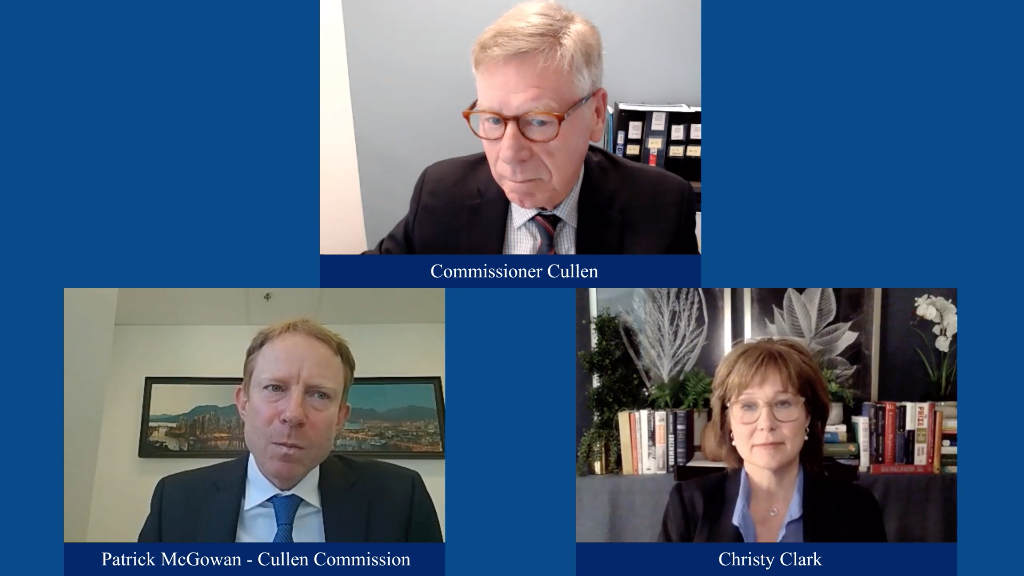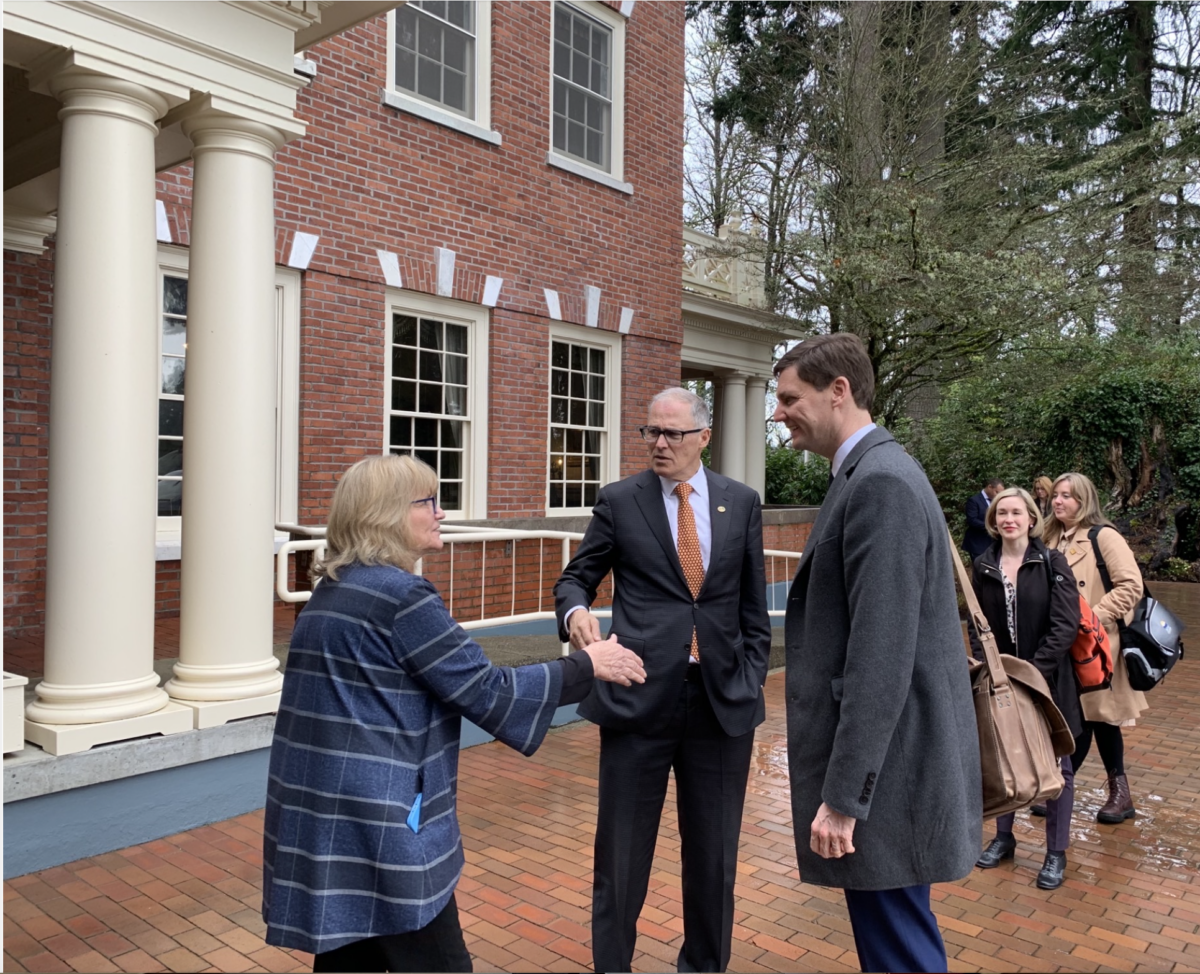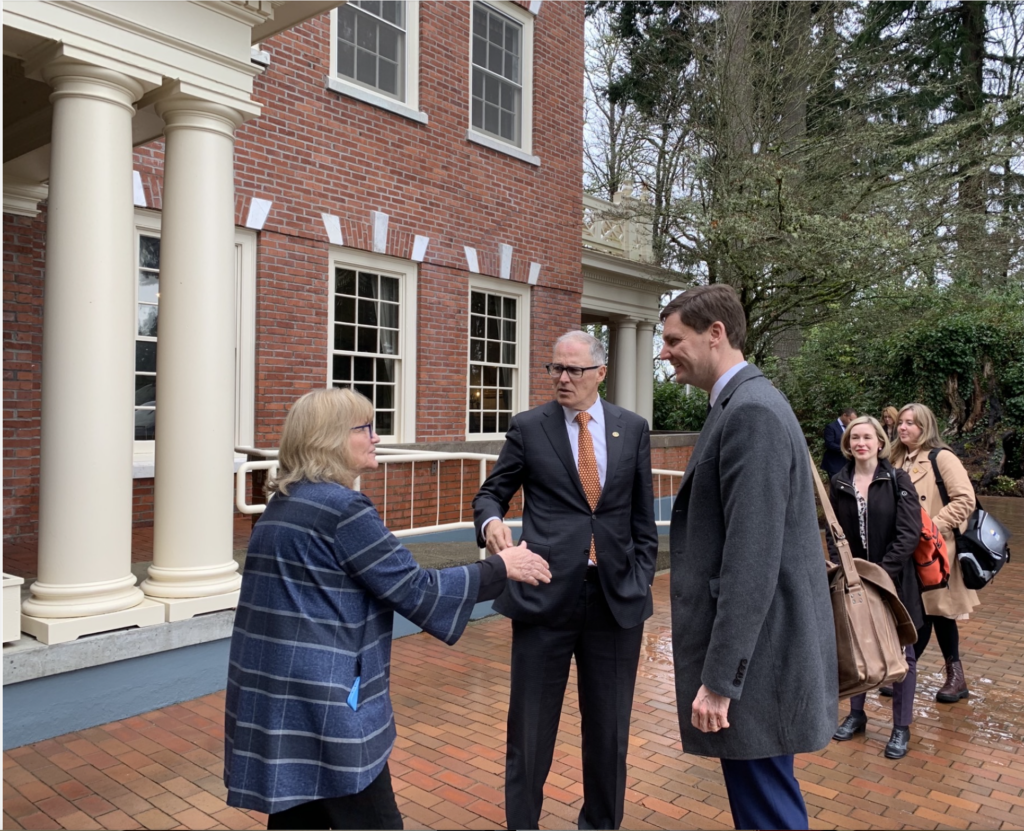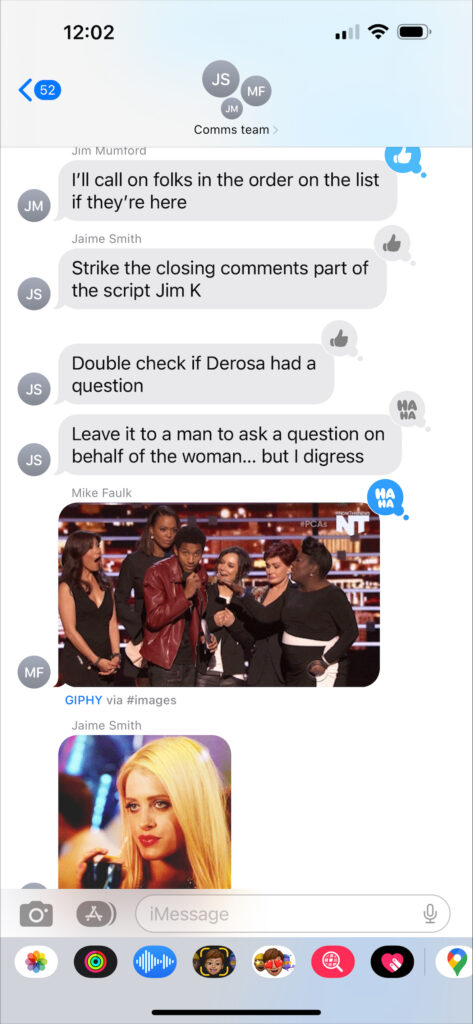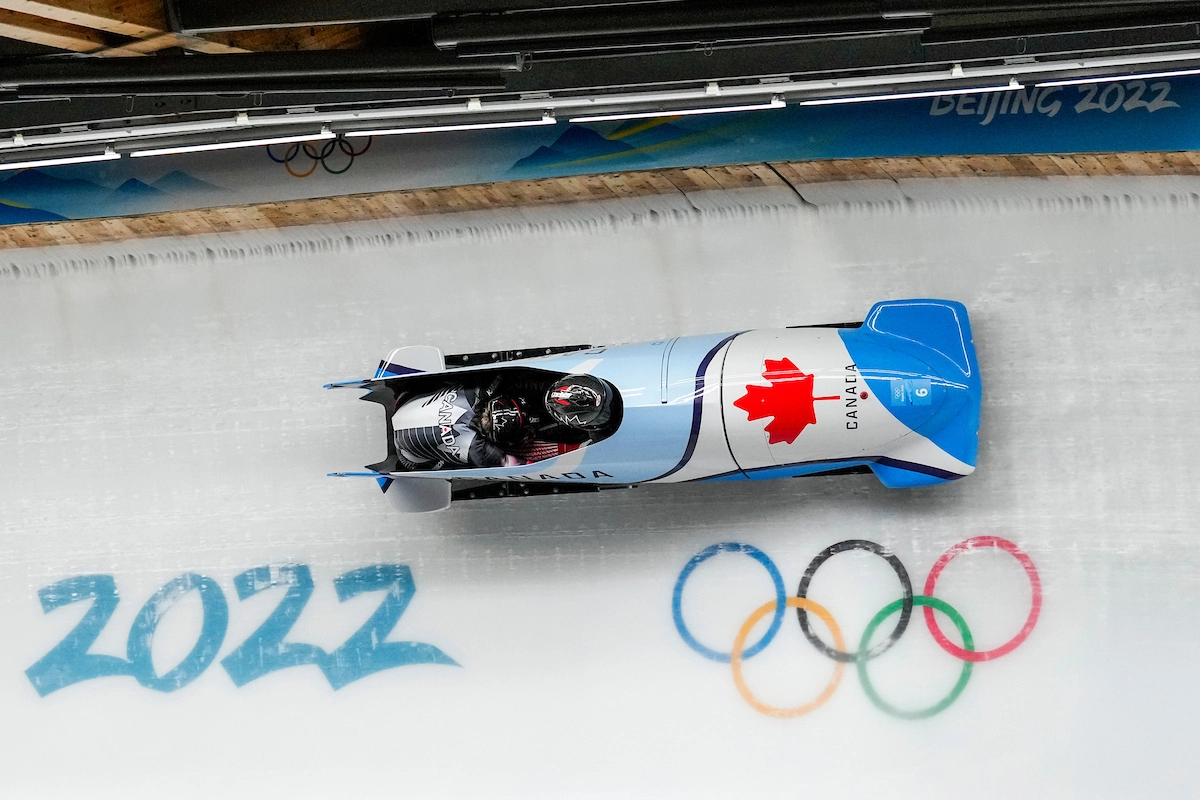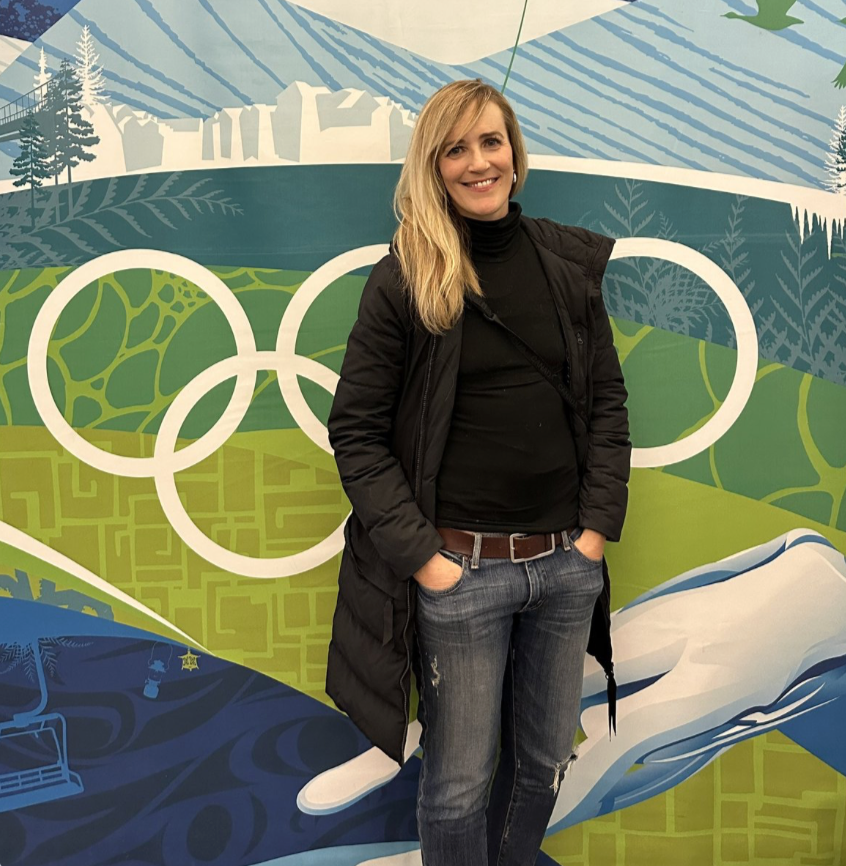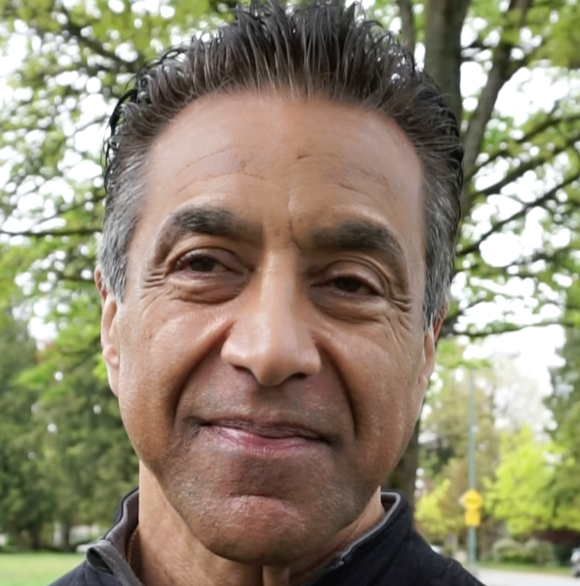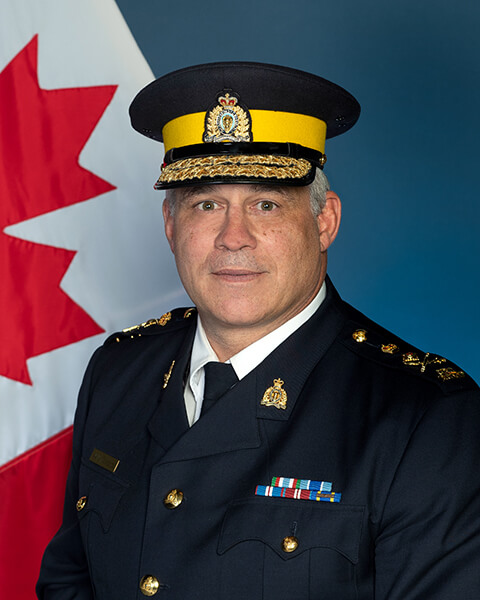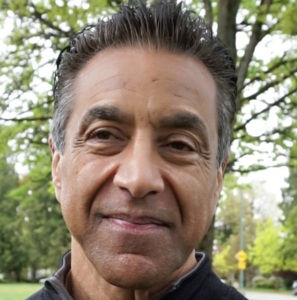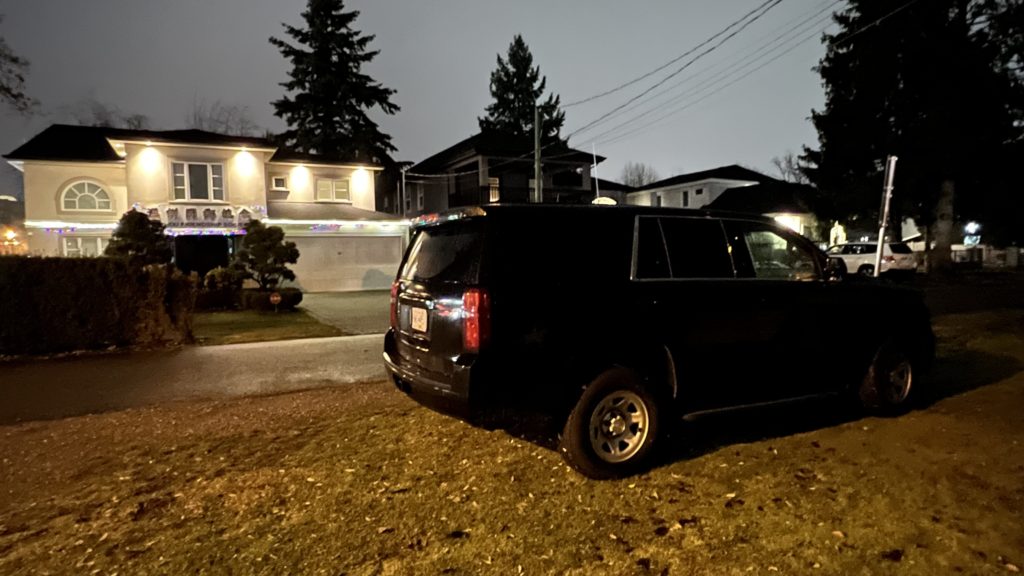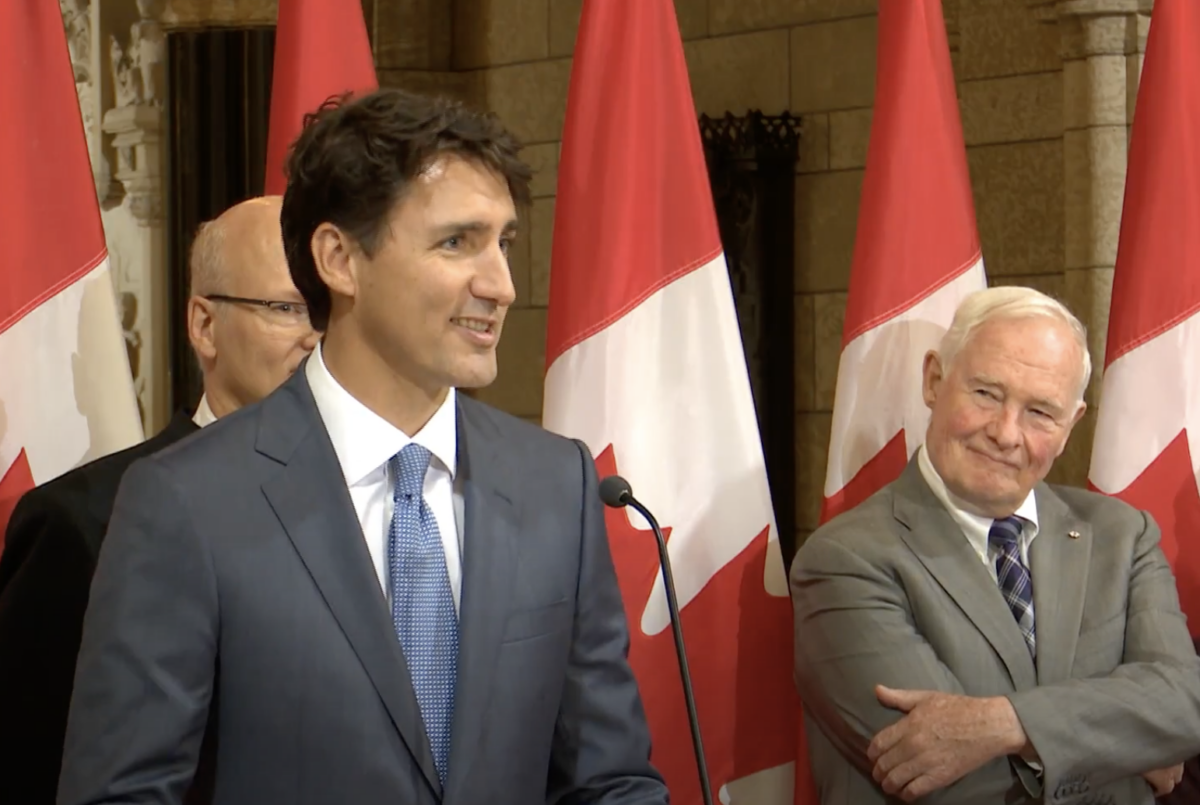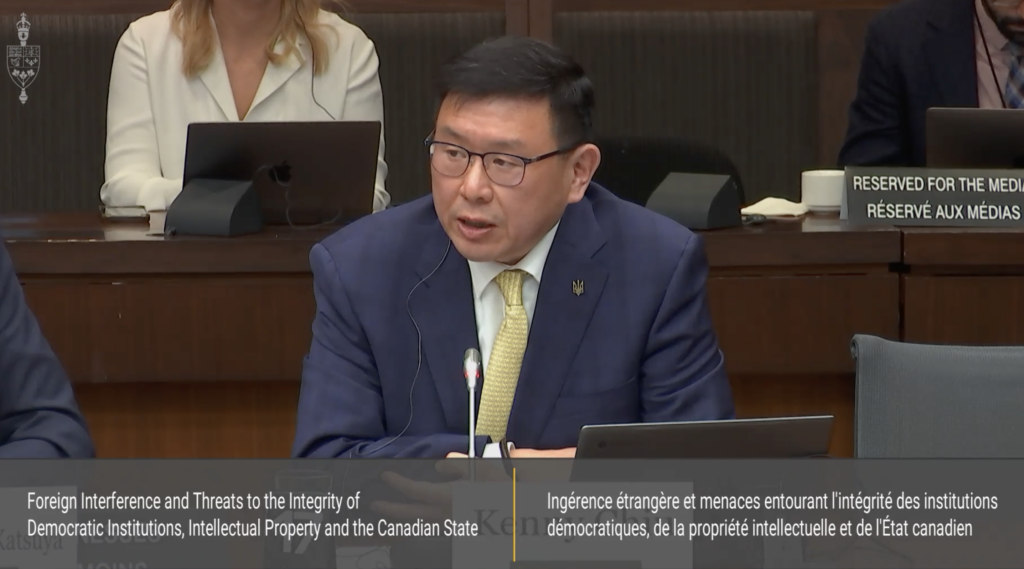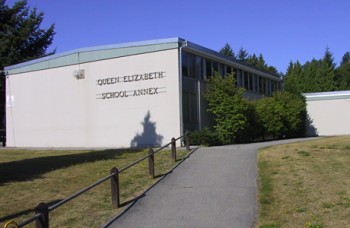Bob Mackin
Lordy, lordy, B.C. Place Stadium is 40!
The dome that attracted a World’s Fair and Winter Olympics, and triggered False Creek North’s transformation from industrial to residential, opened June 19, 1983.
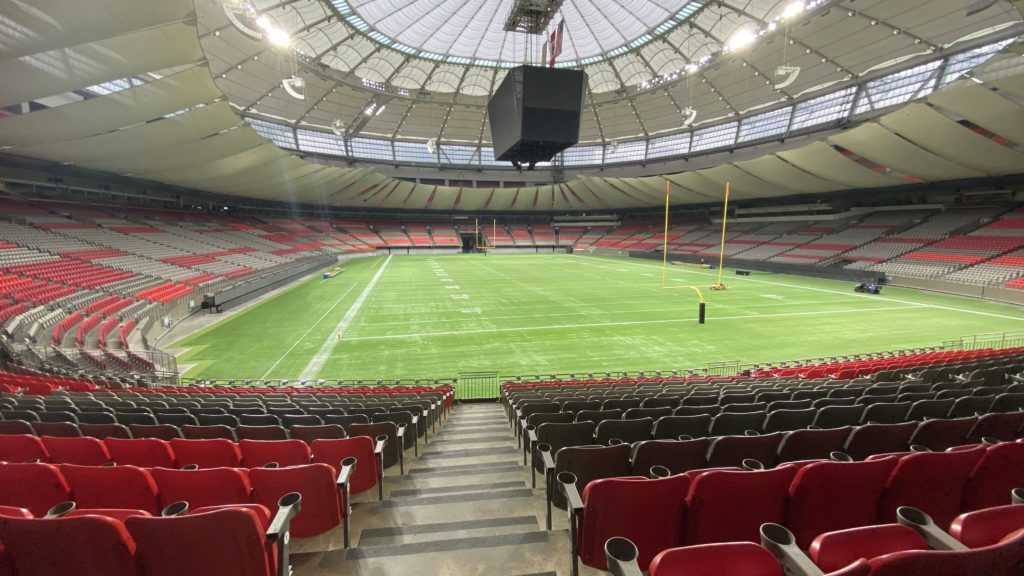
Inside B.C. Place Stadium (Mackin)
A look at the history of downtown Vancouver’s biggest room, through stats and facts.
0.85: thickness in millimetres of the original teflon-coated Fibreglass roof. First inflated Nov. 14, 1982. It ripped and collapsed Jan. 5, 2007 after the air pressure was hiked, instead of the snow-melting system.
1: B.C. Lions first shutout in B.C. Place, 22-0 over the Edmonton Elks on June 17, 2023.
2: Queen Elizabeth II visited March 10, 1983, before it opened, to invite the world to Expo 86. Pope John Paul II delighted faithful Catholics on Sept. 18, 1984.
3: Number of tenors who sang and walked off the stage early for a New Year’s Eve show that almost didn’t happen Dec. 31, 1996. After a late December snowstorm, staff with shovels and brooms scrambled to clear snow from the roof, saving both the roof and the concert by Jose Carreras, Placido Domingo and Luciano Pavarotti.
4: Number of Douglas Coupland’s Terry Fox sculptures facing Robson Street. Unveiled in 2011, two weeks before the stadium reopened, the statues replaced the original four-sided triumphal arch on Terry Fox Plaza by Franklin Allan and Ian Bateson.
5: The retired jersey numbers of Lions’ kicker Lui Passaglia and Vancouver Whitecaps’ defender Bob Lenarduzzi. They set longevity records in the Canadian Football League and North American Soccer League, respectively.
6: B.C. Place appears in The 6th Day, a 2000 sci-fi thriller starring Arnold Schwarzenegger.
7: The third digit in Percy Williams’ 667 bib at the 1928 Olympics in Amsterdam, where he won 100 m and 200 m gold medals. Williams is immortalized in statue outside the B.C. Sports Hall of Fame.
8: Number of years that drivers in the 1990-launched Molson Indy Vancouver raced around B.C. Place. The route shifted eastward from 1998 to 2004.
9: Number of Grey Cup games at B.C. Place (1983, 1986, 1987, 1990, 1994, 1999, 2005, 2011 and 2014). The Lions lost the first to Toronto, but won in 1994 and 2011. It’s returning in 2025.
10: The Russ Howard-skipped Team Canada scored five in the 10th end of the Men’s World Curling Championship on April 5, 1987, beating Germany 9-5.
12: Number of Lions’ seasons coached by Wally Buono.
13: Jersey number of Peter Beardsley, scorer of both Whitecaps’ goals in the 2-1 win over the Seattle Sounders on June 20, 1983.
16: Carli Lloyd scored three goals in 16 minutes to lead the U.S. over Japan in FIFA’s Canada 2015 Women’s World Cup final on July 6, 2015.
18: Number of cars daredevil motorcyclist Robbie Knievel jumped over on Jan. 24, 1987.
22: Quarterback Doug Flutie began an eight-year career in the CFL wearing Lions jersey number 22 in 1990.
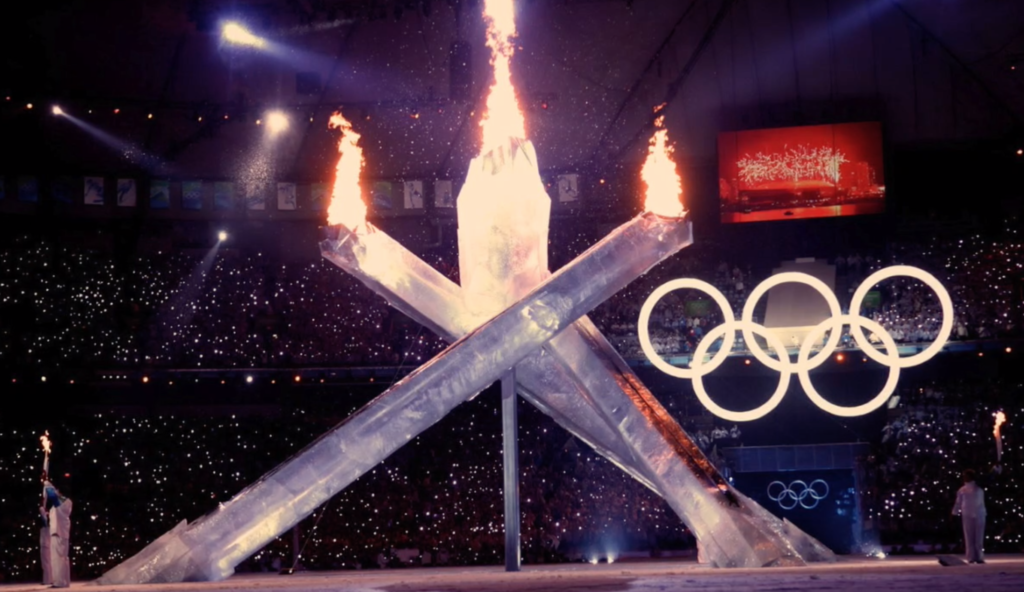 36: Number of imported-from-Thailand steel masts erected to support the new 2011 roof. Stuttgart, Germany engineering firm Schlaich Bergermann and Partner pioneered the new generation retractable roof system at a Frankfurt stadium rebuilt for the 2006 FIFA World Cup.
36: Number of imported-from-Thailand steel masts erected to support the new 2011 roof. Stuttgart, Germany engineering firm Schlaich Bergermann and Partner pioneered the new generation retractable roof system at a Frankfurt stadium rebuilt for the 2006 FIFA World Cup.
38: Lions are in their 38th season at B.C. Place (due to renovations, all of 2010 and part of 2011 were at Empire Field and 2020 was lost to the pandemic).
40: U2 ended their Joshua Tree Tour concert on Nov. 12, 1987 with “40,” the last track from the War album.
41: Points scored by the McMaster Marauders in the three-point, double-overtime win against the Laval Rouge et Or in the 47th Vanier Cup championship on Nov. 25, 2011.
47: Joe Biden, the 47th vice-president (now 46th president), led the U.S. delegation to the opening ceremony of the Vancouver 2010 Winter Olympics and the 2015 Women’s World Cup.
82: Number of national flags paraded at the Vancouver 2010 opening ceremony on Feb. 12, 2010.
86: With their fifth round pick in the June 16, 1990 NHL Draft at B.C. Place, the Vancouver Canucks chose Gino Odjick, 86th overall.
100 m x 85 m: size of the opening in the retractable roof.
140: Length in minutes of the first concert on the roof, the Contact Music Festival’s Feb. 6, 2021 webcast featuring DJs Vanic, Tails B2B Juelz, Nostalgix and Poni.
200: The 2023 edition of the HSBC Canada Sevens was the 200th such tournament in men’s rugby sevens history. Argentina defeated Fiji for the trophy.
228: The concourse location where an elderly janitorial contractor collapsed early Nov. 13, 2006, during cleanup from the Lions West final win. Pritam Kaur Sandhu died later that day in Vancouver General Hospital, the stadium’s only known workplace fatality. The law requires immediate notification to WorkSafeBC, but management did not report the incident for almost two years.
403: Number of bankers boxes of documents that were destroyed in December 2015 by contractor 1800-Shredding. Subjects of the 1983 to 2009 files included stadium events, personnel, accounting, operations and construction bids.
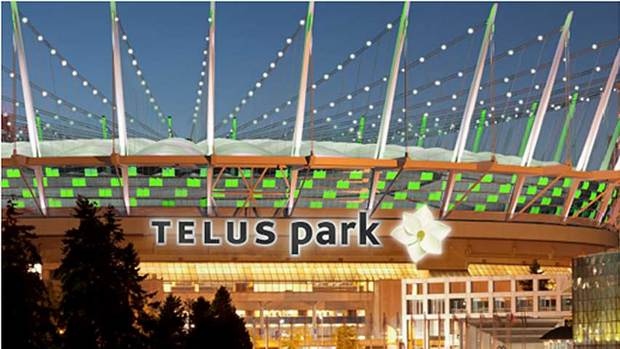
B.C. Place Stadium was supposed to become Telus Park, but Clark nixed the naming rights deal.
957: Number of unique names (including Pigeon Place and Rain Bowl) suggested by 7,446 entrants in a name the stadium contest. A petition signed by 15,138 supported Terry Fox Stadium, but it was originally dubbed the Stadium at B.C. Place instead.
1999-2000: KISS’s New Year’s Eve concert made it the last band to play B.C. Place in 1999 and the first of 2000. A recording was released in a 2006 box set.
7,924 km: distance covered by Steve Fonyo on his St. John’s to Victoria Journey for Lives cancer research fundraiser. He stopped at B.C. Place on the penultimate day, May 27, 1985.
40,075 km: distance covered by Rick Hansen’s 34-country, Man in Motion World Tour. He celebrated at B.C. Place on May 23, 1987, the day after the tour ended at Oakridge Centre. Hansen rolled into the stadium with the Olympic flame at the 2010 Games’ opening ceremony.
41,875: The attendance for Canada’s first indoor baseball game on Aug. 12, 1983. The Vancouver Canadians lost 10-9 to the Phoenix Giants before a Pacific Coast League record crowd. The night included an old-timers game that featured legends Hank Aaron and Roger Maris and a concert by Gloria Loring and Bob Hope.
60,342: Attendance for the Whitecaps’ match against Seattle on June 20, 1983.
$200,000: How much Ken Schley and John Briulo paid to buy one of the original SS Minnows from Gilligan’s Island. Co-star Dawn Wells, aka Mary Ann, appeared with the yacht at the Vancouver International Boat Show in 2014.
$250,000: Cost to produce the 90-minute opening ceremony on June 19, 1983, shown live on BCTV. California’s Robert Jani was the producer and Don Harron the master of ceremonies. The 41,604 attendees were treated to the Vancouver Symphony Orchestra and figure skater Karen Magnussen.
$11 million: The cost to taxpayers for the April 6, 2013 Times of India Film Awards.
$15.2 million: How much Telus billed taxpayers for technology installed during the renovation, after the BC Liberal cabinet cancelled the sponsorship contract. B.C. Place almost became Telus Park.
$126 million: original budget to build the stadium. Adjusted for inflation, that’s $343.3 million.
$514 million: The cost of the 2011-completed renovation and new roof, as reported by the provincial government in 2012. It had been budgeted at $563 million.
Support theBreaker.news for as low as $2 a month on Patreon. Find out how. Click here.
Bob Mackin
Lordy, lordy, B.C. Place Stadium is
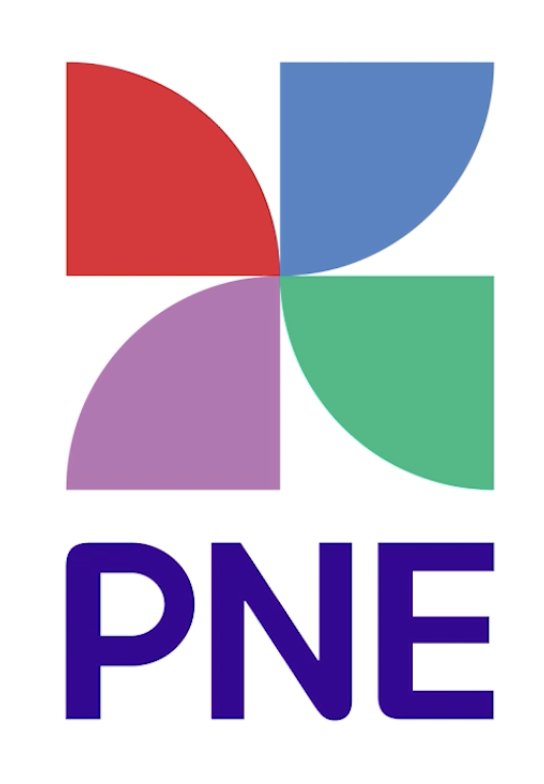








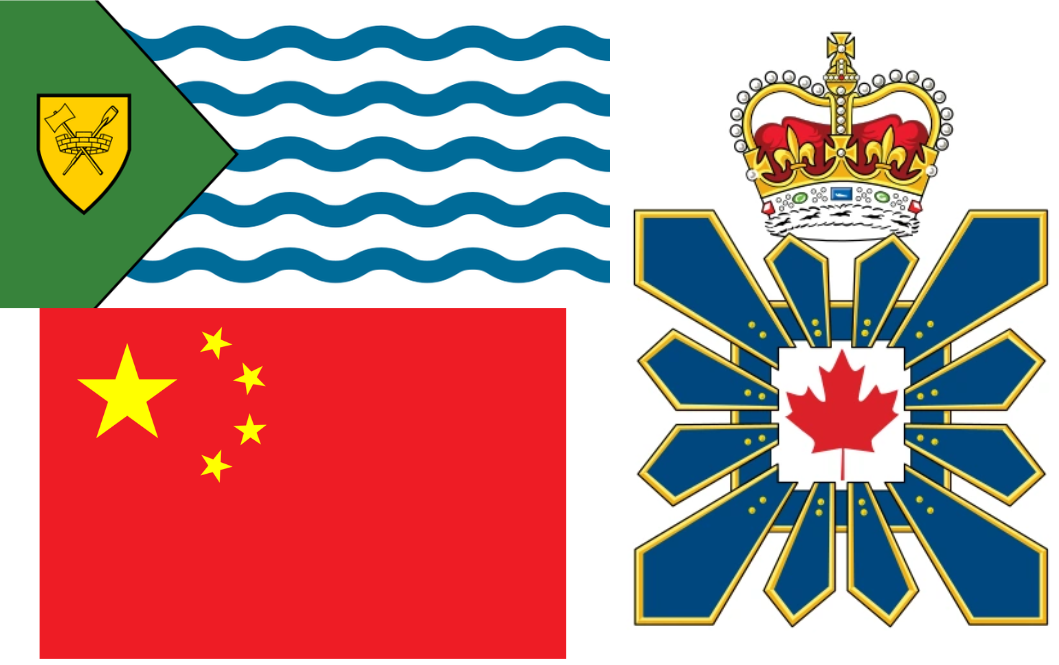
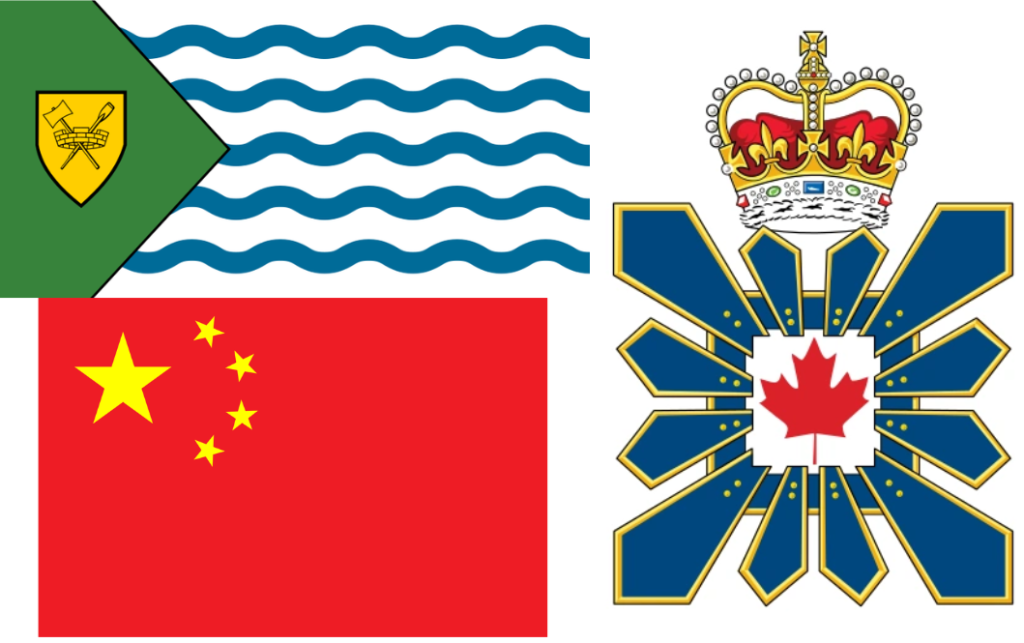
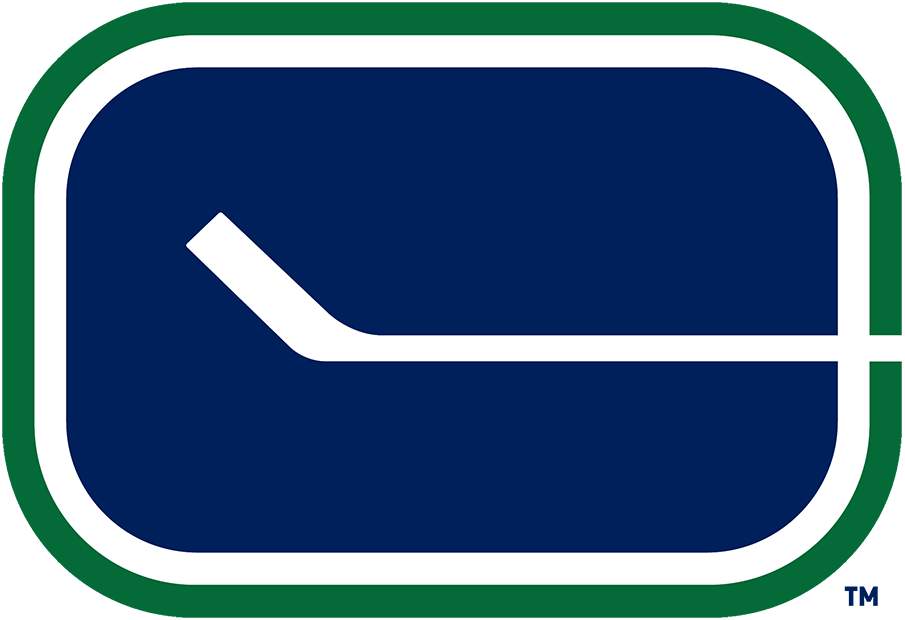
 Look what else happened since 1970.
Look what else happened since 1970.

 36: Number of imported-from-Thailand steel masts erected to support the new 2011 roof. Stuttgart, Germany engineering firm Schlaich Bergermann and Partner pioneered the new generation retractable roof system at a Frankfurt stadium rebuilt for the 2006 FIFA World Cup.
36: Number of imported-from-Thailand steel masts erected to support the new 2011 roof. Stuttgart, Germany engineering firm Schlaich Bergermann and Partner pioneered the new generation retractable roof system at a Frankfurt stadium rebuilt for the 2006 FIFA World Cup.
